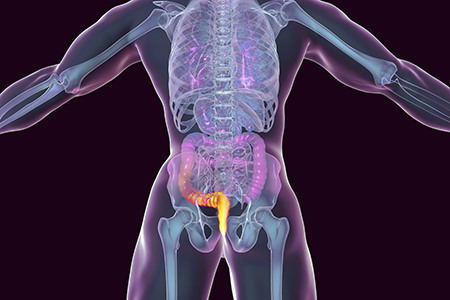 Fecal microbiota transplantation (FMT) is the transfer of fecal matter from a healthy individual into a recipient with the goal of treating an ailment. In its simplest form FMT has been used to treat disease with reports detailing its use as far back as 1700 years ago in China1. Modern applications of this procedure have been developed to treat Clostridium difficile infections, colitis, and irritable bowel syndrome with treatment options being explored for numerous other maladies. In preclinical studies, FMT is an important tool in microbiome research that enables researchers the opportunity to study the effects of a given microbiota once transplanted into a germ-free mouse.
Fecal microbiota transplantation (FMT) is the transfer of fecal matter from a healthy individual into a recipient with the goal of treating an ailment. In its simplest form FMT has been used to treat disease with reports detailing its use as far back as 1700 years ago in China1. Modern applications of this procedure have been developed to treat Clostridium difficile infections, colitis, and irritable bowel syndrome with treatment options being explored for numerous other maladies. In preclinical studies, FMT is an important tool in microbiome research that enables researchers the opportunity to study the effects of a given microbiota once transplanted into a germ-free mouse. Recently on their agency's website2, the United States Food and Drug Administration (FDA) issued a safety alert for fecal transplant procedures. This announcement comes after two immunocompromised patients contracted an invasive infection of a drug-resistant Escherichia coli following a fecal material transplantation. The FMT donor material was not tested for this pathogen. As a result, the agency is planning to suspend multiple clinical trials involving this procedure.
Furthermore, due to the serious adverse reactions that occurred within this FMT clinical trial, the FDA has determined that the following protections are needed for any investigational use of FMT:
- Donor screening with questions that specifically address risk factors for colonization with multi-drug resistant organisms (MDROs), and exclusion of individuals at higher risk of colonization with MDROs.
- MDRO testing of donor stool and exclusion of stool that tests positive for MDRO. FDA scientists have determined the specific MDRO testing and frequency that should be implemented.
It remains to be seen how this safety alert will ultimately impact the future use of FMT to treat diseases. Once hailed as a relatively low-cost and simple therapy, this recent unfortunate news has revealed new risks that need to be accounted for. Pending additional guidance, it seems likely that higher stringency testing requirements will likely be needed as a measure to prevent future severe adverse events.















.jpg)

.jpg)
.jpg)
.jpg)
.jpg)





.jpg)


.jpg)
.jpg)

.jpg)


.jpg)





.jpg)

.jpg)





